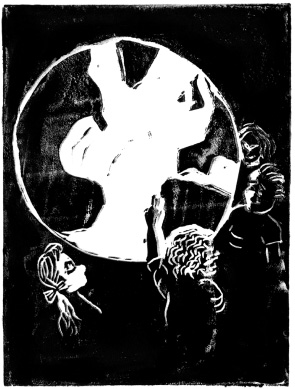
Quo Vadis? Where are you going? Why is this the big question of Catholicism? Why does Peter say “Quo Vadis?” to Jesus? Why would a Hebrew speak Latin to a fellow Hebrew? And what are we to make of the answer: “I’m going to Rome to be crucified”? Is this not a good example of an answer that really only raises more questions? Doesn’t it sound very Jewish if what you hear is “Oh, don’t worry about me; I’ll just go to Rome and get crucified”? But why does he say Rome when he is probably going to Jerusalem, and why would he go there to be crucified? Isn’t the question the point?
Isn’t it significant that the life of Jesus ended with a question? “My God, why hast thou forsaken me?” Does the fact that this question was recorded in Aramaic and not Latin give it more authenticity? Or is it just that it is a better question than the one he was asked in Latin? Are the best questions unanswerable? Is that the real test of a question? Or is not getting an answer, as Schopenhauer believed, a sign that you are asking the wrong question? Why did God forsake him? Is that the right question? Isn’t it the wrong question for a religious person but the central question of agnostics? Wasn’t Job tempted to ask this question? Isn’t the split between religious people and atheists divided on the answer to this question? If there is a God, why was there a holocaust, a massacre in Rwanda, and why do children die? Isn’t this a central question of religion?
“Where are we?”
But can I ask a different question? Suppose the story had ended there, with Jesus asking this question? Would this have been a good story? Would Christianity ever have developed? Didn’t Christian leaders early on sense the problem when they started explaining that he wasn’t really asking a question when he said, “Why hast thou forsaken me?”—that he was really saying, “This is my destiny”? Isn’t the point that he needs to end on a statement, not a question? Can a good story end on a question? Of course, wasn’t this problem solved by not ending there, but instead by having him resurrected into everlasting life? Without that, if it had just ended on that question—“Why hast thou forsaken me?”—where would the story be?